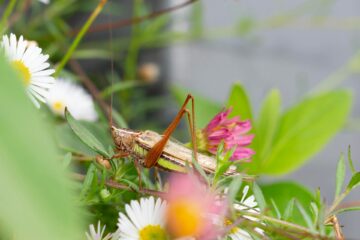Gardening is a great way to get your kids outside, teach them about nature, and help them learn about science. Gardening can also be a fun activity that the whole family can do together. It doesn’t have to be expensive either! In this article I’ll show you how to start a garden with your kids and help you get started on having fun together while learning at the same time
Start with a small garden.
Start with a small garden.
If you’re new to gardening, or just want to make sure your kids enjoy the experience, start with something small and manageable. A raised bed or container garden is ideal for beginners because it’s easy to maintain and can be moved indoors during cold weather. You’ll also have more control over what goes into your child’s first garden than if he or she were planting directly in the ground–you can focus on teaching them about soil quality, watering techniques and pest control from the start rather than introducing these concepts later on when things get out of hand (or worse yet: become infested).
Don’t overspend on garden supplies.
Don’t overspend on garden supplies
If you’re new to gardening, it can be tempting to splurge on fancy tools and equipment. But don’t! You can find many of the things you need at thrift stores, garage sales and flea markets–and even make some of them yourself. For example:
- If your kids want some of those cute little rake-and-shovel sets sold in toy stores (or even dollar stores!), check out how easy it is to make your own versions out of scrap lumber or PVC pipe at home depot’s website.
- And if those plastic tools look “cheap” to you? Well then perhaps they will break less easily than super-expensive ones would! In which case…that could actually save money in the long run too!
Let your kids get dirty.
They’ll love it. Kids are naturally curious and love to explore, so a garden is an ideal place for them to do just that. You can even make it more fun by introducing some games that involve getting your hands dirty, like making mud pies or planting seeds in the dirt (or sand). Once they’re done playing around in the soil, they’ll be more likely to try out whatever food you’ve planted!
Let them grow their own food.
Growing your own food is a great way for kids to learn about the value of healthy eating and getting exercise. They’re also likely to get a sense of accomplishment as they watch their plants grow, which can be motivating for kids who want to keep going when things get difficult.
If you don’t have enough space in your yard or garden for all the plants your child wants to grow, try starting small and working up from there: one vegetable at first (like potatoes), then two or three more next year and so forth until you reach your goal!
Use the garden to learn about nature and science.
There are many ways to use the garden as a learning tool. For example, you could have your kids help you find out which plants need more water and then spread out their trays accordingly. You could also use the garden as an opportunity to teach them about nature and science. If you’re growing something that requires pollination from bees or butterflies, for example, show them how these insects work so they can learn about pollination for themselves!
Encourage teamwork and cooperation in the garden.
Teaching kids about teamwork is one of the best things you can do for their future. It’s also fun when you get them involved!
- Teach them how to divide up tasks. Have your kids help with planting seeds, watering plants or weeding. They’ll learn how important it is for everyone on a team to do their part so that everyone succeeds together.
- Show them how important teamwork is for success in school, sports and careers – especially when it comes to sharing information or ideas with other people who might have different perspectives than yours.
Gardening is a great way for kids to learn about nature, work together and have fun!
Gardening can be an excellent way for kids to get involved in the outdoors. It teaches them about the food cycle and how plants grow. As well as helping them learn about science, biology and botany. Children can also benefit from learning about teamwork and cooperation when they garden with others.
We hope this article has given you some ideas for how to get your kids involved in gardening. If you still need more inspiration, check out our other articles on the topic. Or share this one with friends and family who may also be interested in starting their own garden!
Keep on top of your gardening with our free online journal
Our free online tool allows you to organise your ideas and garden plans and help you be as efficient as possible in the garden.
Sign up now

